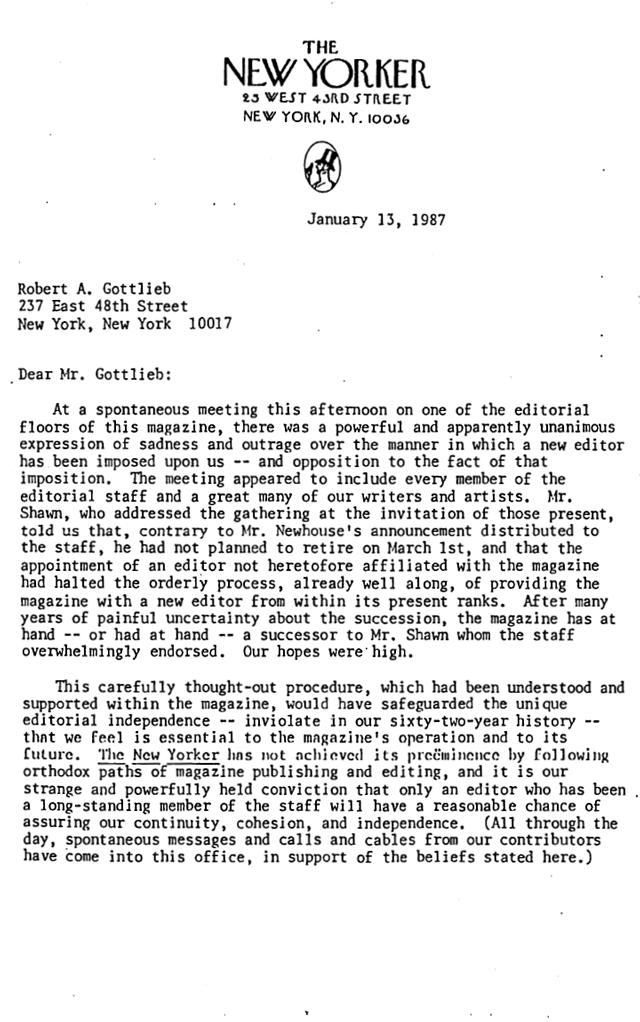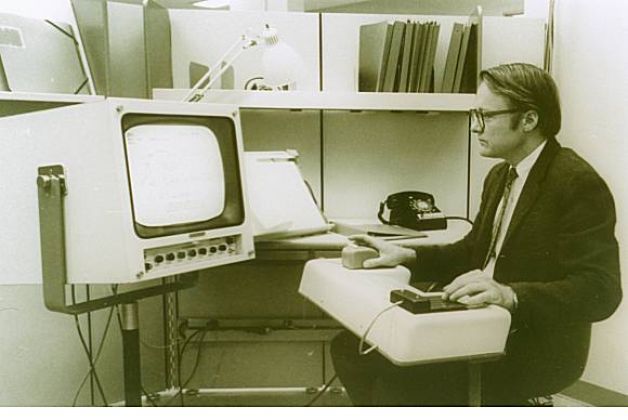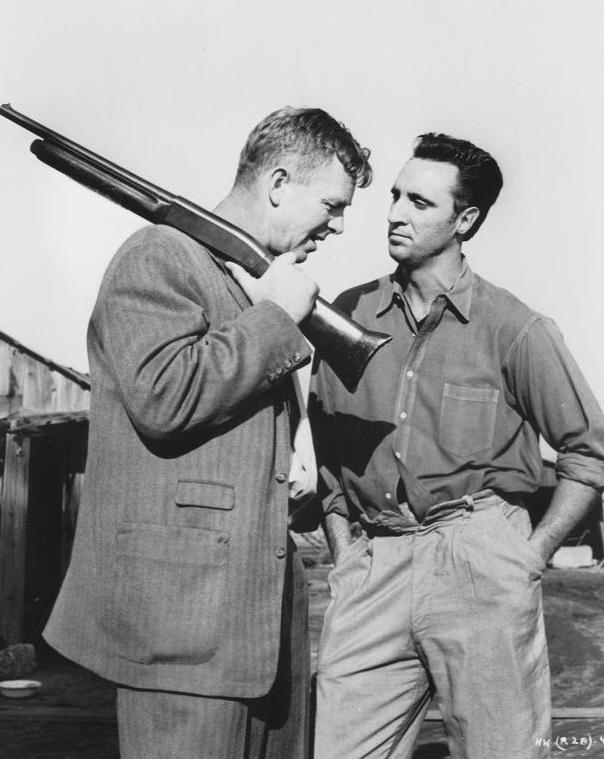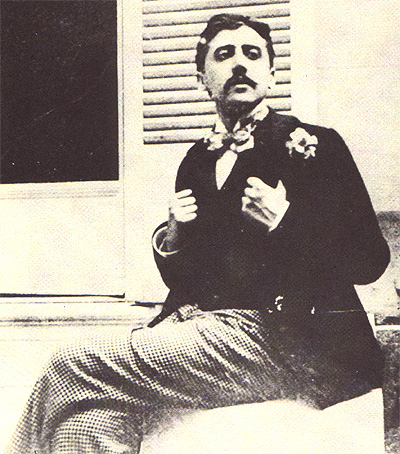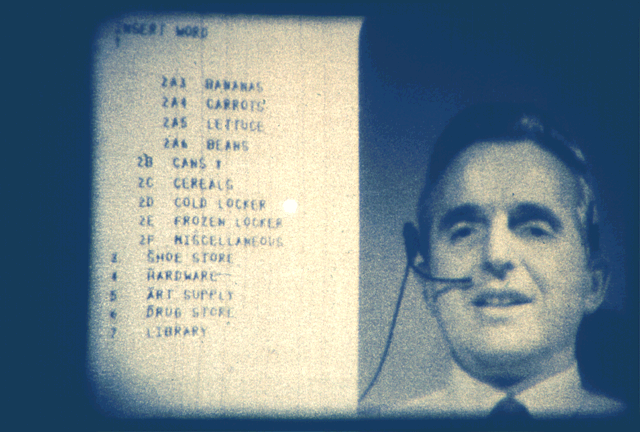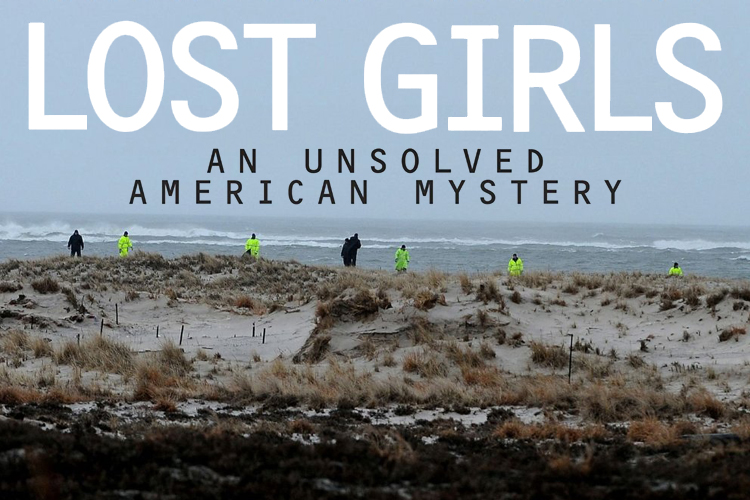Allen Ginsberg in London in 1967, talking about how communication via technology changes the meaning, alters the context. And as the screens have gotten smaller and more ubiquitous, we’re not just lost in our own surroundings but in our own heads as well.
You are currently browsing the yearly archive for 2013.
Tags: Allen Ginsberg
From the April 28, 1900 Brooklyn Daily Eagle:
“Walter Wentworth, 75 years old, and for many years a professional contortionist, is in New York looking for someone to buy his body. He has long been a wonder to medical men on account of the wonderful pliability of his frame, which he has already sold twice–once to Dr. Cowes of Detroit, and later to Dr. Wilder of New York, receiving in each case $100. Both these medical men are dead and now Wentworth is looking for a third speculator.–Chicago Chronicle“
Tags: Dr. Cowes, Dr. Wilder, Walter Wentworth
From “The Letter,” Elon Green’s smart Awl reconsideration of the Robert Gottlieb era at the New Yorker, which began with a staff protest and ended with his firing five years later:
“Gottlieb’s appointment enraged the staff, who were again not asked for their approval. It didn’t much matter that Gottlieb’s publishing career was the stuff of well-deserved legend; he’d edited Joseph Heller, Michael Crichton, Robert Caro, John Gardner, and so on. The reaction was, well, fairly New Yorker-ish. A very proper letter (‘scrutinized and corrected by the magazine’s fact checkers and proofreaders,’ wrote the Times) was sent to Gottlieb, beseeching him to decline the job. Containing four pages of signatures, the letter made clear that the staff’s anger was not so much with Gottlieb himself (‘Many of us know you personally and professionally, and admire your splendid record at Knopf’) as the ‘sadness and outrage over the manner in which a new editor has been imposed upon us.’ Many staffers wrote to the new boss (‘sort of off the record,’ as a former editor put it) and explained that to him.
This was not the act of a fringe contingent. The letter—which, until now, has never been published in its entirety—is signed by 154 staffers, including J.D. Salinger, Calvin Trillin, John McPhee, Jamaica Kincaid, Saul Steinberg and Janet Malcolm.” (Thanks Browser.)
Tags: Elon Green, Robert Gottlieb
Today is a special day when Americans eat too much, drink too much and blow stuff up. That’s right, it’s Thursday.
Oh, and it’s also July 4th, the birthday of the U.S.A., the greatest nation in the history of the world. If you forget that America is the best country ever, we’ll remind you again in ten minutes. That’s because we’re large and wealthy yet deeply insecure, much like Alec Baldwin. Luckily, other countries are far worse so they can’t say shit. Yes, Turkmenistan, I’m looking at you. Suck it! And if you do talk trash about us, we’ll know right away because we’re listening in on your private conversations. We can’t help it: Spying on you gets us really hard.
Anyhow, enjoy a safe and happy holiday!
••••••••••
A day at the beach with Blotto, which was not Devo:
In 1981, actor Sterling Hayden, who began looking like Tom Waits’ hobo uncle a decade earlier, visits with Tom Snyder. In part one, Hayden discusses his failed attempts at writing an article for Rolling Stone about the funeral of Yugoslavia’s late dictator Marshal Tito.
Tags: Sterling Hayden, Tom Snyder
In a new London Review of Books essay, Slavoj Žižek, that holy fool, counters the idea that recent global unrest and mass protests are isolated incidents, though his definitions of the Occupy movement and capitalism may vary from yours. An excerpt:
“In 2011, when protests were erupting across Europe and the Middle East, many insisted that they shouldn’t be treated as instances of a single global movement. Instead, they argued, each was a response to a specific situation. In Egypt, the protesters wanted what in other countries the Occupy movement was protesting against: ‘freedom’ and ‘democracy’. Even among Muslim countries, there were crucial differences: the Arab Spring in Egypt was a protest against a corrupt authoritarian pro-Western regime; the Green Revolution in Iran that began in 2009 was against authoritarian Islamism. It is easy to see how such a particularisation of protest appeals to defenders of the status quo: there is no threat against the global order as such, just a series of separate local problems.
Global capitalism is a complex process which affects different countries in different ways. What unites the protests, for all their multifariousness, is that they are all reactions against different facets of capitalist globalisation. The general tendency of today’s global capitalism is towards further expansion of the market, creeping enclosure of public space, reduction of public services (healthcare, education, culture), and increasingly authoritarian political power. It is in this context that Greeks are protesting against the rule of international financial capital and their own c.orrupt and inefficient state, which is less and less able to provide basic social services. It is in this context too that Turks are protesting against the commercialisation of public space and against religious authoritarianism; that Egyptians are protesting against a regime supported by the Western powers; that Iranians are protesting against corruption and religious fundamentalism, and so on. None of these protests can be reduced to a single issue. They all deal with a specific combination of at least two issues, one economic (from corruption to inefficiency to capitalism itself), the other politico-ideological (from the demand for democracy to the demand that conventional multi-party democracy be overthrown). The same holds for the Occupy movement. Beneath the profusion of (often confused) statements, the movement had two basic features: first, discontent with capitalism as a system, not just with its particular local corruptions; second, an awareness that the institutionalised form of representative multi-party democracy is not equipped to fight capitalist excess, i.e. democracy has to be reinvented.
Just because the underlying cause of the protests is global capitalism, that doesn’t mean the only solution is directly to overthrow it. Nor is it viable to pursue the pragmatic alternative, which is to deal with individual problems and wait for a radical transformation. That ignores the fact that global capitalism is necessarily inconsistent: market freedom goes hand in hand with US support for its own farmers; preaching democracy goes hand in hand with supporting Saudi Arabia. This inconsistency opens up a space for political intervention: wherever the global capitalist system is forced to violate its own rules, there is an opportunity to insist that it follow those rules. To demand consistency at strategically selected points where the system cannot afford to be consistent is to put pressure on the entire system. The art of politics lies in making particular demands which, while thoroughly realistic, strike at the core of hegemonic ideology and imply much more radical change. Such demands, while feasible and legitimate, are de facto impossible. Obama’s proposal for universal healthcare was such a case, which is why reactions to it were so violent.”
Tags: Slavoj Žižek
Marcel Proust, who was a subject of photography after dying, was taken with telephony during life. The opening of Clara Byrne’s Forbes piece about the novelist’s relationship with this disruptive technology:
“‘The telephone, a supernatural instrument before whose miracles we used to stand amazed, and which we now employ without giving it a thought, to summon our tailor or order an ice cream,’ wrote Marcel Proust in his much discussed but less read novel In Search of Lost Time. So what can a dead French novelist tell us about new technology? As it turns out, the answer is quite a lot.
Proust was a keen observer and user of new technologies from the telephone to the motorcar and plane, all of which came into common usage over the lifetime of his epic novel. The author even subscribed to a service which allowed members to listen to plays and concerts over the phone, a sort of 19th century Netflix but he is at his sharpest on the social impact of that new communication technology known as the telephone.”
Tags: Clara Byrne, Marcel Proust
Jason Everman was in Army basic training when he and his fellow recruits heard that Kurt Cobain had committed suicide. But he was the only one who had actually played guitar for Nirvana. Everman was fired from the band before it blew up, and the same scenario soon played itself out again when he was cast from Soundgarden while it was on the cusp. Everman decided to pursue an alternative career, training to become a U.S. Army Special Forces member just as the whole world seemed to be blowing up. From Clay Tarver’s New York Times Magazine article about Everman’s amazing story:
“I don’t know how he got through the next year. Everman’s friend from home, Ben Shepherd, replaced him in Soundgarden. Their next album went double platinum. Of course, Nirvana — after replacing Jason’s friend Chad Channing on drums with Dave Grohl — became the biggest band in the world. That record he never got paid back for, Bleach, eventually sold 2.1 million copies. Nevermind sold nearly 30 million copies worldwide and changed the course of rock. Everman, meanwhile, was left behind with no idea what to do next.
For the first month, he just went fetal. ‘It was a huge blow,’ he admitted to me quietly. ‘I had no warning. The only good thing about it was it made me leave the Pacific Northwest. I would never have done that otherwise.’ He moved to New York and got a job working for a while in the Caroline Records warehouse, a long way from the tour bus.
Jason played with other bands, eventually joining one called Mindfunk. He actually had success with it, moving with the band to San Francisco, but something was still not right. Then in the midst of all the confusion in his life, he came to the realization that he had to make a change. He knew he didn’t just want to be a guy in his 15th band, the guy talking about his time in Nirvana and Soundgarden 20 years later. He wanted to do something, he said, something impossible. ‘I was in the cool bands,’ he told me in the cabin. ‘I was psyched to do the most uncool thing you could possibly do.’
So in 1993, while living in a group house in San Francisco with the guys in Mindfunk, Everman slipped out to meet with recruiters; the Army offered a fast track to becoming a Ranger and perhaps eventually to the Special Forces. He told me he always had an interest in it. His stepfather was in the Navy; both grandfathers were ex-military. Most of the people he grew up with scoffed at that world, which was part of the appeal to him. Novoselic remembered something Everman said way back in the Olympia days. ‘He was just pondering. He asked me, ‘Do you ever think about what it’d be like to be in the military and go through that experience?’ And I was just like . . . no.’
Everman started waking up early while his bandmates slept in; he went biking, swimming, got in shape. One day, with zero warning, he resigned. He put all of his stuff in storage. He took a flight to New York and went to an Army recruiting office in Manhattan. A couple of weeks later he was on a flight to Georgia. ‘Was I nervous?’ he asked. ‘I was a little nervous. But I knew.'”
Tags: Clay Tarver, Jason Everman
Is there a bigger hack in American journalism than Jason Whitlock? A well-compensated Foxsports.com columnist, Whitlock is an awful thinker and writer, given to jaw-dropping generalizations and lazy connections which don’t cohere. In his latest piece, about the Aaron Hernandez murder case, he throws a grab bag of societal ills at the NFL star’s behavior, hoping some of the shit will stick. He blames Hernandez’s criminality on the American penal society, the war on drugs, gangster rap, and, um, reality TV and the Sopranos. It’s not that I favor widespread incarceration or the prohibition of drugs, and you couldn’t pay me to watch any so-called real housewives, but this article is an example of a dull hammer treating every last thing in its reach like a nail. It’s stupid beyond belief.
Oh, and since the beginning of all this pop culture he derides, the U.S. crime rate has actually seen a marked decrease. But facts don’t get in the way of a Whitlock narrative–nothing of intelligence does. An excerpt from his brain droppings:
“This is what a 40-year drug war, mass incarceration, a steady stream of Mafia movies, three decades of gangster rap and two decades of reality TV have wrought: athletes who covet the rebellious and marketable gangster persona.
Hernandez is the most extreme example. He apparently moonlighted as a professional football player while perfecting his role as Christopher Moltisanti, Tony Soprano’s boneheaded nephew.
But we should not be shocked that a professional athlete possibly crossed the line into sociopathic killer. The unhealthy side effects of drug prohibition and popular culture have made murderous drug dealers respected members of American society. Random, murderous violence and the people who commit those crimes have been normalized in America, thanks in large part to popular culture.
We all loved and respected Tony Soprano. This is why James Gandolfini’s death was such a big story. We did not know Gandolfini. We knew Tony. To some degree, we all wanted to be Big T.
I am not surprised to learn that a 23-year-old professional athlete covered in tattoos is linked to several violent acts, including ‘accidently’ shooting a man in the face. Modern athletes carry guns. They do drugs. They mimic rappers and gangster pop-culture icons.
Athletes want street cred, and they costume themselves in whatever is necessary to get it. Nike, Reebok, Adidas, etc., were the first to recognize the importance of authentic street cred when it came selling product to American youth.
There was a financial incentive for Allen Iverson not to evolve beyond his Tupac Shakur imitation.
It was only a matter of time before some athlete was accused of imitating Tony Soprano. The gangster influence in our society is that strong.”
Tags: Aaron Hernandez, Jason Whitlock
From the November 20, 1901 Brooklyn Daily Eagle:
“Decatur, Ala.–James Wynn, an Oxford blacksmith, narrowly escaped being buried alive to-day. After the funeral services the casket was opened at the grave, when the body was seen to move.
The casket was hurried back to the home of Wynn, where he revived and is now under treatment. Wynn had been pronounced dead by physicians and he lay apparently dead for two days.”
Tags: James Wynn
The opening of an excellent piece by Christopher Mims at Quartz which explains the science of measuring the life spans of memes:
“More and more of the things that set the internet on fire are of that species of charmingly moronic pairing of text and image that allows even the post-literate to feel like they have partaken of a shared cultural moment. And now, scientists are beginning to understand how the curiously addictive visual tropes known as ‘memes’ are born, why they die, and whether or not it’s possible to predict which will ‘go viral’ and be harvested by the night-soil merchants up at meme warehouses like Cheezburger.
Treating memes like genes tells us which are likely to spread
The internet, of course, was barely in its infancy when Richard Dawkins, a British evolutionary biologist, coined the term ‘meme’ back in 1976. And he meant it as a much more nuanced concept, encompassing pretty much any idea that is good at propagating from one human brain to another—whether it is dialectical materialism or the tune to Happy Birthday.
But Dawkins was deliberate in his comparison of memes to genes. Like the molecular units of inheritance, memes ‘reproduce’ by leaping from one mind to another, ‘mutate’ as they are re-interpreted by new humans, and can spread through a population. The internet has radically accelerated the spread of memes of all kinds; but it has also led to the rise of a specific kind of meme, the kind encapsulated by a phrase or a picture. And importantly for scientists, the life of a such a meme is highly measurable.”
Tags: Christopher Mims, Richard Dawkins
Sex Doll realistic life size silicone – $2000 (Midtown)
Silicone Sex doll type II She’s all silicon with a removable vagina…. weighs 105 pounds She has been sitting in a wear house for two years bought for resale and sitting in one position that her breast drooped down a bit nothing u can’t fix… all it has to be done is to be turned up side down in a hot place like your garage especially in FL and her breast will go back to normal or heated with a blow dryer… Doll is worth $6000 but the way her breast are eeeehhh… oh well. She’s for sale AND SHE IS BRAND NEW NEVER FUCKED. It was bought for a store than things never worked so she’s in my hands now please send me an email or phone # if your interested no less than $2,000 that’s the bottom line.
In a Slate piece by Michael Hertsgaard, Michael Pollan argues that we should clean up our environment utilizing the certainty of photosynthesis over the possibilities of terraforming. An excerpt:
“According to Pollan, photosynthesis is ‘the best geoengineering method we have.’ It’s also a markedly different method than most of the geoengineering schemes thus far under discussion—like erecting giant mirrors in space or spraying vast amounts of aerosols into the stratosphere to block the sun’s energy from reaching Earth. Whether any of these sci-fi ideas would actually work is, to put it mildly, uncertain—not to mention the potential detrimental effects they could have.
By contrast, we are sure that photosynthesis works. Indeed, it’s only a slight exaggeration to say that photosynthesis is a major reason we humans can survive on this planet: Plants inhale CO2 and turn it into food for us, even as they exhale the oxygen we need to breathe.
What does all this have to do with eating meat? Here’s where Pollan gets positively excited. ‘Most of the sequestering takes place underground,’ he begins.
‘When you have a grassland, the plants living there convert the sun’s energy into leaf and root in roughly equal amounts. When the ruminant [e.g., a cow] comes along and grazes that grassland, it trims the height of the grass from, say, 3 feet tall to 3 inches tall. The plant responds to this change by seeking a new equilibrium: it kills off an amount of root mass equal to the amount of leaf and stem lost to grazing. The [discarded] root mass is then set upon by the nematodes, earthworms and other underground organisms, and they turn the carbon in the roots into soil. This is how all of the soil on earth has been created: from the bottom up, not the top down.’
The upshot, both for global climate policy and individual dietary choices, is that meat eating carries a big carbon footprint only when the meat comes from industrial agriculture. ‘If you’re eating grassland meat,’ Pollan says, ‘your carbon footprint is light and possibly even negative.'”
Tags: Michael Hertsgaard, Michael Pollan
It would really be much less messy for humans if other animals didn’t have consciousness, but they do and probably more than we’d like to believe. From Brandon Keim’s new Aeon essay:
“In the 1960s, Jane Goodall was mocked by her primatologist peers for speaking of chimpanzee emotions, such as a mother grieving for her dead infant. Even her use of gender-specific terms for individual chimpanzees was seen as anthropomorphic and unscientific. As the journalist Virginia Morell recounts in Animal Wise (2013), Goodall’s editor at the prestigious journal Nature tried to replace ‘he’ and ‘she’ with ‘it’ in her first manuscript. When the zoologist Donald Griffin wrote in The Question of Animal Awareness (1976) that biologists should investigate ‘the possibility that mental experiences occur in animals and have important impacts on their behaviours’, it was still a radical suggestion.
These days, Goodall is a hero, Griffin a prophet, and studies of animal intelligence ubiquitous: not just in chimpanzees, dolphins and parrots, but in octopuses, archerfish, prairie dogs and honeybees — a veritable Noah’s Ark of braininess. Caveats remain, of course. Intelligence is relatively easy to study, but it isn’t quite the same thing as consciousness, nor emotional life. It’s been less controversial to ask whether rats remember where they stored food than whether one rat cares for another.
Yet even rats, it turns out, feel some empathy for one another. A team at the University of Chicago found that rats became agitated when seeing surgery performed on other rats, and a follow-up study in 2011 found that, when presented with a trapped labmate and a piece of chocolate, rats free their caged brethren before eating. Those who study animal behaviour are still careful when talking about subjective experience — sure, Eurasian jays can guess what their mates want to eat, but who knows if they like each other? — but they’re being professionally cautious rather than dismissive. The average person can safely speculate away: animal consciousness is a reasonable default assumption, at least for vertebrates, and not just in some dim sense of the word, but possessing forms of self-awareness, empathy, emotion, memory, and an internal representation of reality.”
Tags: Brandon Keim, Jane Goodall
It sounds almost biblical, but it was only a little more than a century ago that a Long Island mother cast away her three-year-old daughter, the result of some mysterious, multi-generation wound. The story from the August 12, 1903 New York Times (scroll down to second item):
“Mrs. Egbert V. Strong of Babylon, L.I., repented before her death last April that she had cast out her only daughter at the age of 3 years and refused thereafter to have anything to do with her. This was learned yesterday when it became known that Mrs. Strong had left her entire estate, valued at $100,000, to her daughter, Miss Marion Goodale Strong. She is living with Mr. and Mrs. George E. Congdon of Trumansburg, Tompkins County, N.Y. She is 24 years old.
According to residents of Babylon, Mrs. Strong was fond of her daughter until the little girl was 3 years old. Then she suddenly ordered that the child be taken from the house, and she never willingly saw her again. She did see her once, three years later, when Mr. Strong, in an attempt to bring about a reconciliation, induced his wife to visit relatives, not knowing that her daughter was at the same house. Mrs. Strong liked the child until she learned it was her own. Then she left the house and ordered that her daughter’s named should never be mentioned in her presence. It was shortly after that that Marion was sent to live with relatives at Trumansburg, N.Y.
Although Mr. Strong has always been on the friendliest terms with his daughter, his wife’s peculiar dislike never seemed to affect his respect for Mrs. Strong, and they lived happily in Babylon together.
It is said that Mrs. Strong’s mother, Mrs. Goodale of Peconic, L.I., felt similarly toward her daughter for many years, but that there was a final reconciliation.”
Tags: Miss Marion Goodale Strong, Mr. Egbert V. Strong, Mr. George E. Congdon, Mrs. Egbert V. Strong, Mrs. George E. Congdon, Mrs. Goodale
I couldn’t disagree more with Robert J. Samuelson’s opinion piece in the Washington Post which states that the Internet isn’t worth the downside it brought, that its benefits have been meager, but he is right to be concerned about the potential of cyber warfare. So much depended on the red wheelbarrow, and now so much depends on the Internet. An excerpt from his WaPo piece:
“By cyberwarfare, I mean the capacity of groups — whether nations or not — to attack, disrupt and possibly destroy the institutions and networks that underpin everyday life. These would be power grids, pipelines, communication and financial systems, business record-keeping and supply-chain operations, railroads and airlines, databases of all types (from hospitals to government agencies). The list runs on. So much depends on the Internet that its vulnerability to sabotage invites doomsday visions of the breakdown of order and trust.
In a report, the Defense Science Board, an advisory group to the Pentagon, acknowledged ‘staggering losses’ of information involving weapons design and combat methods to hackers (not identified, but probably Chinese). In the future, hackers might disarm military units. ‘U.S. guns, missiles and bombs may not fire, or may be directed against our own troops,’ the report said. It also painted a specter of social chaos from a full-scale cyberassault. There would be ‘no electricity, money, communications, TV, radio or fuel (electrically pumped). In a short time, food and medicine distribution systems would be ineffective.’
I don’t know the odds of this technological Armageddon. I doubt anyone does.”
Tags: Robert J. Samuelson
Emily Bazelon, who writes about judicial issues at Slate, just did an Ask Me Anything at Reddit. Some exchanges below about the NSA scandal, the Voting Right Act rewrite and journalism.
_________________________
Question:
Given the limitations on what can be revealed about the usefulness of information obtained by the the NSA, do you think we’ll ever really know if Snowden did the right thing?
I’m torn between respecting that he believes he was revealing something we all needed to know and thinking he revealed nothing we didn’t already know and, as a result, violated his obligations for nothing.
Emily Bazelon:
I think Snowden did the right thing bec I think we’re better off knowing what he has revealed. I know the govt says he has seriously damaged nat’l security, but the revelations are broad enough that it’s hard for me to credit that claim. I guess I just wonder how many serious terrorists were using these major social media and web sites. That said, I agree that it will take years to know how to think of Snowden as a historical figure. Will he be remembered as an irresponsible maverick, or as someone w Daniel Ellsberg’s stature? In his own moment, Ellsberg was villified and faced serious charges. Those were thrown out bec the Nixon administration overreached. I wonder if we’d think of Ellsberg with respect now if he’d become a convicted criminal. I don’t think the US has much of a tradition of respecting people who go to prison.
_________________________
Question:
Concerning the mining of people’s personal information, isn’t the NSA openly doing what a ton of other corporations and other Governments are already doing? Further, when individuals have willingly given out their personal information, is it an outside entity’s fault for obtaining information that individuals so willingly give?
Emily Bazelon:
The NSA yes is mining data that corporations mine, ie the tech cos. But the tech cos can’t charge us with crimes, right? So for the govt to do it is different. The potential for abuse is higher. I think there’s a distinction here about types of info and what ppl put out publicly v. what they have a reasonable expectation of privacy for. It’s one thing to assume that anything you post on twitter or FB is public. I think that’s the wise approach to take. But your email inbox? I think most of us assume that what we are writing on gmail, etc, is not available for public consumption.
_________________________
Question:
Unlike “literacy tests,” voter-ID laws appear to be applied uniformly across the population in states where they are used. Does this make them okay, or just incrementally less bad than the bad old days?
Emily Bazelon:
Not OK, because they have a disproportionate effect on depressing turnout and registration among young voters, and the elderly, and poor ppl, which means also a disproportionate effect on minorities. And they’re purpose seems suspect to me, since the voter fraud they are supposed to stop so very rarely happens.
I just don’t believe in making it harder for ppl to vote. We don’t have high rates of voting as it is in the US! We should make the polls as accessible as possible without opening ourself to a lot of fraud. And if you think about it, in-person fraud is an incredibly inefficient way to influence an election. Person by person? that’s why no one does it.
_________________________
Question:
It seems everyday there are announcements of layoffs in big journalistic outlets, and the ones that are succeeding (The Atlantic, HuffPo) basically do so off free content. Will journalism still be a profession in 5 years? What will it look like?
Emily Bazelon:
It will be more of what it is now–a tiered system in which there are stars who get paid a lot, and SOME working journalists in the middle, and then more and more unpaid or low-paid jobs, as you say. It’s a paradox: lots of ppl willing to write for free, esp opinion, and fewer places willing to pay for the reporting that’s the backbone of it all.
Tags: Emily Bazelon
From the colorful Telegraph obituary of Peter Scott, a British cat burglar who says he targeted only the rich and famous–not that that makes it okay–and lived for the titillation of potentially being caught doing something naughty:
“Always a meticulous planner, Scott bought a new suit before each job, so that he would not look out of place in the premises he was burgling. Fear, the possibility of capture, excited him.
During one break-in ‘a titled lady appeared at the top of the stairs. ‘Everything’s all right, madam,’ I shouted up, and she went off to bed thinking I was the butler.’ On other occasions, if disturbed by the occupier, he would shout reassuringly: ‘It’s only me!’
In all, by his own reckoning, Scott stole jewels, furs and artworks worth more than £30 million. He held none of his victims in great esteem (‘upper-class prats chattering in monosyllables’). The roll-call of ‘marks’ from whom he claimed to have stolen valuables included Zsa Zsa Gabor, Lauren Bacall, Elizabeth Taylor, Vivien Leigh, Sophia Loren, Maria Callas and the gambling club and zoo owner John Aspinall. ‘Robbing that bastard Aspinall was one of my favourites,’ he recollected. ‘Sophia Loren got what she deserved too.’
Scott stole a £200,000 necklace from the Italian star when she was in Britain filming The Millionairess in 1960. Billed in the newspapers as Britain’s biggest jewellery theft, it yielded Scott £30,000 from a ‘fence.’ After Miss Loren had pointed at him on television saying: ‘I come from a long line of gipsies. You will have no luck,’ Scott lost every penny in the Palm Beach Casino at Cannes.”
Tags: Peter Scott
Steve Wozniak made some buzzed-about, revisionist comments about Apple at the “Go Further with Ford” conference last week, which no doubt contained a lot of truth, though as an outsider I can’t agree with it all. He pointed out Jobs’ flaws as a leader in his first go-around at the company and gave more credit to the vilified John Sculley and the forgotten Gil Amelio (who hired ace designer Jonathan Ive). All that’s good.
But I think his diminution of the MacIntosh isn’t particularly fair on some levels. I understand it wasn’t an immediate commercial success nor a perfect machine, but it was, more than any other, the computer that made the general public embrace the coming Digital Age and forget the horrors of working on Honeywells and the like. It showed what was possible even if it didn’t realize all the potential itself.
Another topic the Woz addressed was Tesla’s electric Model S, which he passed on purchasing at last moment, much to the consternation of Elon Musk. An excerpt from the Verge:
“Question:
So give me thoughts on the Model S…specifically, I’m wondering about your thoughts on the center console.
Steve Wozniak:
Yes. To me, you know, it’s not horrible. If you take it into account, you can use it. I’m good for it. But for most people, I have so much trouble in a car, driving with touchscreens, that I worry about people trying to access the screen while they’re driving. I worry about that a lot, and I don’t think it’s that attractive. It’s not unattractive — not totally ugly at least — but the controls in the Mercedes are so ergonomic, they fit your hand, you never have to look at them, you can feel where your hand is. So I do have a reservation about that, but not enough to turn me off. I think it’s a great car, I think it’s the first electric car that was worth anything. I look at it as, all the electric cars so far have been very tiny so they get better mileage on smaller batteries, you know, they can go 30 miles… or they were sports cars. Well, this is the first one, it’s a luxury car, a big sedan that fits five people comfortably. Well, my gosh, those are the people that are going out and buying $100,000 Mercedes already, so a $100,000 car… money doesn’t matter. The fact that $40,000 is batteries, they don’t see it as much.
So I think they found the right market niche that might be permanent, might be enough to keep a company sustained. And the next step is to bring it to a lower-priced market. And the idea of the replaceable batteries means you buy your battery per mile. You lease the battery, you don’t own it. You only buy the car. That’s a step that’ll appease the other crowd. Luxury guys, I think, really want to own their own battery and don’t even want to swap it with somebody else’s — they want to know what they got.
But it is a problem because you do have to pay now for the battery, and you have to pay for the electricity. As opposed to, you know, just gasoline. So it’s going to probably be more expensive per mile that way, and the economic factor might come into play. But that makes me think, you know, just driving into this building, we passed Ford’s fuel cell research division and I thought, oh my gosh! The words we heard last night from [Ford CEO Alan Mulally] … he mentioned fuel cells, he mentioned electric vehicles. Well, those two go together perfectly. You have to lose energy if you know physics, but it transfers so efficiently to the wheels, that’s why it can still make sense economically. And then you don’t have to carry this huge weight of batteries and the huge cost of the batteries. There are different problems with that one, though.
You know, we keep trying to find the way to clean energy … I’m not smarter than all the people who work on it and research it and the scientists and the people and the laboratories, so it’s not like one person can have this beautiful vision nobody else has. It’s been a struggle my entire life to make better batteries, and all we ever really came up with was lithium ion. That was about it.”
Tags: Elon Musk, Steve Jobs, Steve Wozniak
From the December 21, 1921 New York Times:
“Middletown, N.Y.–Wade Willis, a lad living at Montgomery, this county, has been deprived of his unusual pet, a skunk, and is sorrowful. Some time ago he discovered a young skunk in a cemetery near his home and brought the animal home in his arms.
His parents protested, but that made no difference to Wade, and for weeks the animal has accompanied him about the village, led by a string and petted by the boy as if it were a dog. The parents at last sold the skunk to a fur dealer. The boy is almost inconsolable.”
Tags: Wade Willis
From an Ask Me Anything at Reddit with British paleontologist Dave Hone, an exchange about the type of “voices” dinosaurs had:
“Question:
Dave Hone:
Question:
Dave Hone:
Tags: Dave Hone



